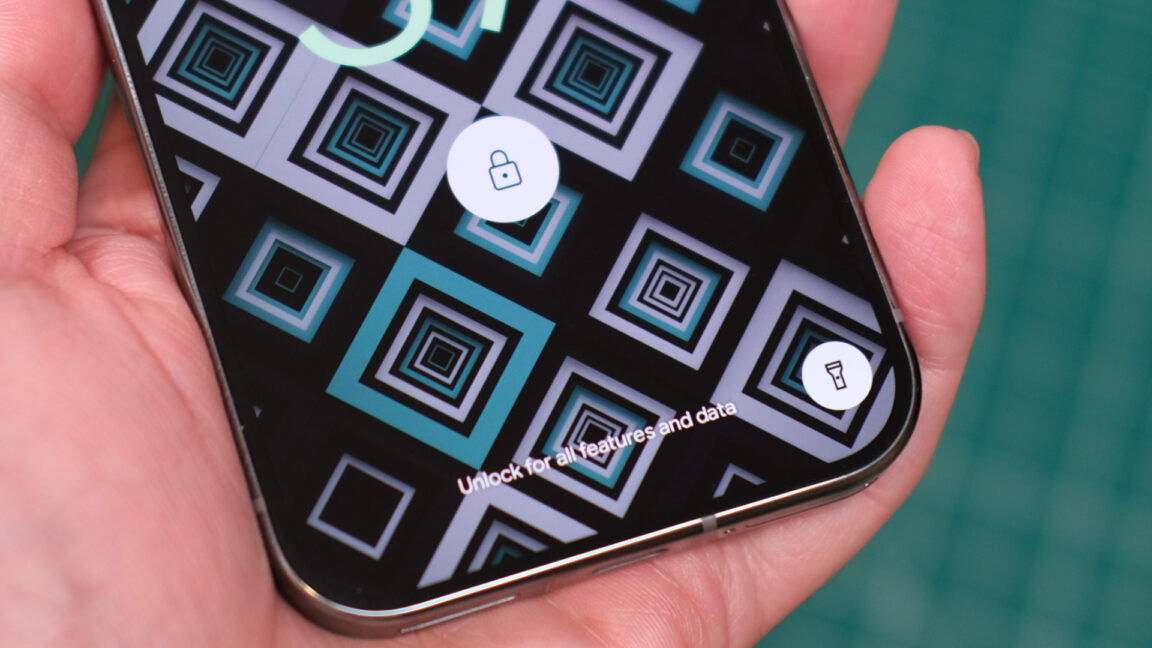Android phones will soon reboot themselves after sitting unused for 3 days
No touching
Android phones will soon reboot themselves after sitting unused for 3 days
The latest Google update will make your phone more secure if you don't touch it
Ryan Whitwam
–
Apr 15, 2025 12:00 pm
|
14
Your data is encrypted in the Before First Unlock state
Credit:
Ryan Whitwam
Your data is encrypted in the Before First Unlock state
Credit:
Ryan Whitwam
Story text
Size
Small
Standard
Large
Width
*
Standard
Wide
Links
Standard
Orange
* Subscribers only
Learn more
A silent update rolling out to virtually all Android devices will make your phone more secure, and all you have to do is not touch it for a few days. The new feature implements auto-restart of a locked device, which will keep your personal data more secure. It's coming as part of a Google Play Services update, though, so there's nothing you can do to speed along the process.
Google is preparing to release a new update to Play Services (v25.14), which brings a raft of tweaks and improvements to myriad system features. First spotted by 9to5Google, the update was officially released on April 14, but as with all Play Services updates, it could take a week or more to reach all devices. When 25.14 arrives, Android devices will see a few minor improvements, including prettier settings screens, improved connection with cars and watches, and content previews when using Quick Share.
Most importantly, Play Services 25.14 adds a feature that Google describes thusly: "With this feature, your device automatically restarts if locked for 3 consecutive days."
This is similar to a feature known as Inactivity Reboot that Apple added to the iPhone in iOS 18.1. This actually caused some annoyance among law enforcement officials who believed they had suspects' phones stored in a readable state, only to find they were rebooting and becoming harder to access due to this feature.
Like Apple's devices, Android phones are most secure when they've been freshly rebooted. In this "Before First Unlock" (BFU) state, biometrics and location-based unlocking won't work. The only way to access the device is to use the passcode or PIN. Additionally, all the data stored on the phone is encrypted in the BFU state, making retrieval and snooping much more difficult, even for law enforcement groups that have access to advanced data recovery tools. Rather than leave your phone, which is a vast repository of personal data, sitting unencrypted indefinitely, the new Play Services will limit that exposure to three days, even if it's plugged in.
The early sluggishness of Android system updates prompted Google to begin moving parts of the OS to Google Play Services. This collection of background services and libraries can be updated by Google automatically in the background as long as your phone is certified for Google services (which almost all are). That's why the inactivity reboot will just show up on your phone in the coming weeks with no notification. There are definitely reasons to be wary of the control Google has over Android with elements like Play Services, but it does pay off when the company can enhance everyone's security without delay.
Ryan Whitwam
Senior Technology Reporter
Ryan Whitwam
Senior Technology Reporter
Ryan Whitwam is a senior technology reporter at Ars Technica, covering the ways Google, AI, and mobile technology continue to change the world. Over his 20-year career, he's written for Android Police, ExtremeTech, Wirecutter, NY Times, and more. He has reviewed more phones than most people will ever own. You can follow him on Bluesky, where you will see photos of his dozens of mechanical keyboards.
14 Comments


